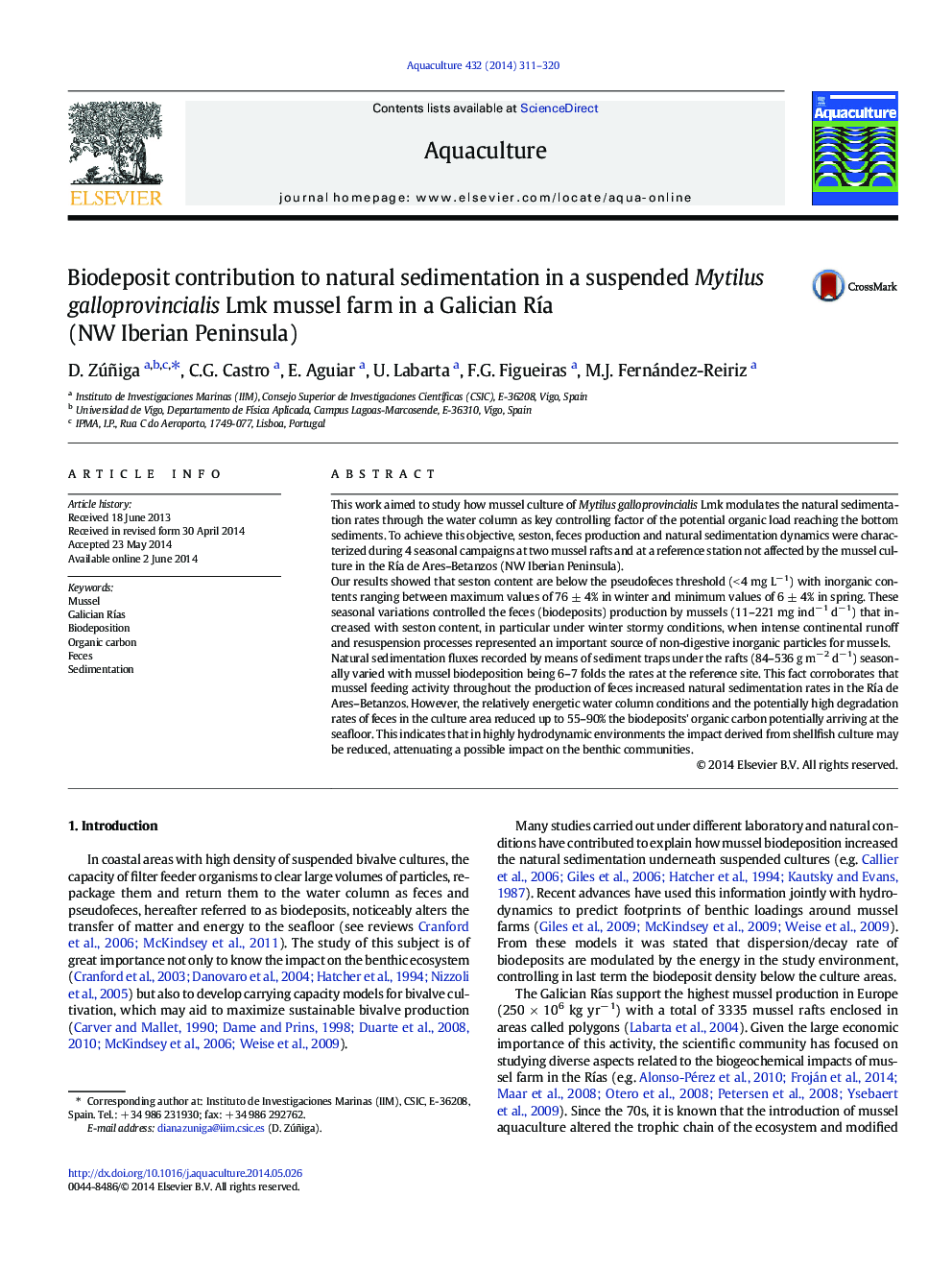| Article ID | Journal | Published Year | Pages | File Type |
|---|---|---|---|---|
| 2421805 | Aquaculture | 2014 | 10 Pages |
•Mussel culture seasonally alters natural sedimentation in the Galician Ria•Seasonal biodeposits production by mussels clearly related with seston inorganic content•Rapid degradation of faeces and hydrodynamics controlled organic carbon arriving to the seafloor
This work aimed to study how mussel culture of Mytilus galloprovincialis Lmk modulates the natural sedimentation rates through the water column as key controlling factor of the potential organic load reaching the bottom sediments. To achieve this objective, seston, feces production and natural sedimentation dynamics were characterized during 4 seasonal campaigns at two mussel rafts and at a reference station not affected by the mussel culture in the Ría de Ares–Betanzos (NW Iberian Peninsula).Our results showed that seston content are below the pseudofeces threshold (< 4 mg L− 1) with inorganic contents ranging between maximum values of 76 ± 4% in winter and minimum values of 6 ± 4% in spring. These seasonal variations controlled the feces (biodeposits) production by mussels (11–221 mg ind− 1 d− 1) that increased with seston content, in particular under winter stormy conditions, when intense continental runoff and resuspension processes represented an important source of non-digestive inorganic particles for mussels.Natural sedimentation fluxes recorded by means of sediment traps under the rafts (84–536 g m− 2 d− 1) seasonally varied with mussel biodeposition being 6–7 folds the rates at the reference site. This fact corroborates that mussel feeding activity throughout the production of feces increased natural sedimentation rates in the Ría de Ares–Betanzos. However, the relatively energetic water column conditions and the potentially high degradation rates of feces in the culture area reduced up to 55–90% the biodeposits' organic carbon potentially arriving at the seafloor. This indicates that in highly hydrodynamic environments the impact derived from shellfish culture may be reduced, attenuating a possible impact on the benthic communities.
